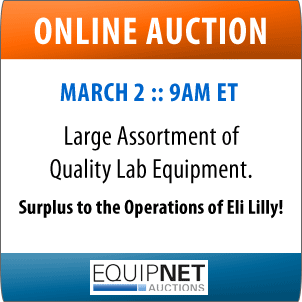|
Sep 27
2010
|
No. 47: PI needs medical leave; How does that affect her newly awarded grant?Posted by: PIA in Tagged in: Untagged
|
|
Sign Up to receive free weekly articles like these
RESEARCH COMPLIANCE
PI needs medical leave; How does that affect her newly awarded grant?
Reader Question: An assistant professor in our department was recently awarded her first grant. The bad news: Her pregnancy is high-risk, and she will require a great deal of bed rest at home. Do granting agencies have policies to cover such contingencies and extend the duration of the grant and/or the amount of funds drawable? Or is she just out of luck?
Expert Comments: It would depend. She would have to work with the PO. There are lots of options: for example, a co-PI could handle the research while the person is out.
The PI could also request a short-term absence through her PO. The latter would keep track in a file so they know the progress of the research, noting that it has slowed. The PO also would know what to expect of the PI.
As long as someone is there handling the research while she's out, that's fine. But if it's very long-term, a PI could transfer the project to another PI, assuming that's appropriate as far as the research being done and the solicitations. (Some solicitations can have only one PI.)
Long-term absence can affect a PI's ability to produce reports, so over time this potentially could hamper the receipt of additional funding and the ability to make any changes on the award. But even a PI who is absent usually can submit a report that says their research has slowed, thus averting such problems.
Are there certain time limits on when PIs have to spend the grant money? The longest time limit, when there are appropriation lapses, is six years from time of award. Within that period it's basically left to the judgment of the PO to grant extensions as necessary.
Expert comments by Jamie French, grant specialist in the Division of Grants and Agreements, National Science Foundation.
Note: The following is from the National Science Foundation (NSF) Proposal & Award Policies & Procedures Guide:
- Short-Term Absence of PI/PD or co-PI/co-PD. “If the PI/PD or co-PI/co-PD will be absent from the project for short periods of up to three months, he/she shall notify appropriate officials of the grantee organization. The grantee shall then notify the NSF Program Officer of arrangements for conduct of the project during the PI/PD’s or co-PI/co-PD’s temporary absence.”
- Long-Term Absence of PI/PD or co-PI/co-PD. “(i) In the event the PI/PD or co-PI/co-PD will be away from the project for a period greater than three months (e.g. sabbatical leave) but intends to return, arrangements for oversight of the project shall be sent electronically to NSF for approval. This information must be provided at least 30 days before departure or as soon as practicable after the prospective absence is known. The NSF Program Officer will provide written approval to the grantee if the arrangements are satisfactory, but no formal amendment to the grant will be made.”
Additional Expert Comments: No, she would not be out of luck. The funding agencies all have policies for life events. Rarely would they yank the money away, and especially not in this circumstance.
We had a similar case last year. One the professors had cancer, and she was the principal investigator on the program. She went to her program officer (PO), and he arranged to put a hold on the funds. The exact procedure on how to handle this might differ slightly among agencies, but whatever the granting agency is in this case, she will be able to continue her research at a later date.
Expert Comments Coming Next Week: Michael Mueller, director of the Office of Proposal Development, Office of the Vice President for Research and Graduate and Professional Education at Rutgers, the State University of New Jersey; and by Jamie French, grant specialist in the Division of Grants and Agreements, National Science Foundation.
This eAlert is brought to you as an informational training tool by the Principal Investigators Association, which is an independent organization. Neither the eAlert nor its contents have any connection with the National Institutes of Health (NIH) or the National Science Foundation (NSF), nor are they endorsed by these agencies. All views expressed are those personally held by the author and are not official government policies or opinions.
written by Denis English, Ph.D., September 22, 2010
written by Harvey B, September 27, 2010
written by Denis English, Ph.D., September 28, 2010
written by Wendy Gleich, November 02, 2010
In this way, we will be prepared for these occurrences with a plan already in place that will allow us to limit any possible negative impact these occurrences might have on the over all progress of funded research projects.
I think that we can plan our investigations by putting into place research teams in labs that support each other and improve the health, education, and welfare of everyone equally. We on a team are committed to sharing our mutual time, talents, ideas, and available resources with each other to achieve the missions and goals of each research project. We all deserve to be supported by each other in our work to maintain optimal health of our team. The goal is to make sure that our work goes on and that we contribute positively to current understandings and practices in ways that will help us address human needs and solve real-world problems.
No one's ideas or understandings that have been gained from ongoing studies and experiences in their life's work should be permanently silenced and not heard simply because they needed to address a temporary personal health care or family health care need that resulted in losing financial and team support for their important work-in-progress.
Everything we gain from research and from research-in-progress is important. EVERYONE'S voice should be heard. And no one should have their work silenced and their talents, ideas and understandings about improving our world lost to us; simply because they had take time off of their research projects to care for their own health or someone in their family.
Let's make sure we don't silence the voices of anyone who has already demonstrated their potential to help us through research or any other kind of positive work, simply because we don't want to "pick-up and carry the ball" for our leaders and team members who have a temporary health care need.
Someday, everyone of us will have the need to take FMLA and some of us will become disabled on the job. Let's plan our research work so that we all share knowledge, time, talents, and financial resources equally.
Laws are there to protect us. And policies, plans and protocols need to protect everyone; and not just those who are are still young, healthy, and have less family responsibilities or financial hardships. By supporting each other in our work we can prevent setbacks in our progress due to normal human needs and family life.
We all need to take the responsibility for planning how we will work together to comply and support the progress of each project and goals of each workplace...because, someday, all of us will need the protections provided by FMLA, ADA, EEOC, and Age-Discrimination Laws.
Top finds
- Migliori Siti Di Poker Online
- Casino Non Aams
- Migliori Slot Online
- Casino Not On Gamstop
- Casino Not On Gamstop
- Migliori Casino Online Italia
- Non Gamstop Casinos UK
- Best Non Gamstop Casinos
- Non Gamstop Casino Sites UK
- Non Gamstop Casinos
- Sites Not On Gamstop
- Betting Sites Not On Gamstop UK
- Best Online Casino Canada
- オンラインカジノ
- Real Poker Online
- Slots Not On Gamstop
- Non Gamstop Casinos
- Non Gamstop Casino Sites UK
- UK Casino Sites Not On Gamstop
- Slots Not On Gamstop
- Non Gamstop Casino Sites UK
- Casino Sites Not On Gamstop
- Meilleur Casino En Ligne
- UK Casino Not On Gamstop
- Best Betting Sites Not On Gamstop
- Migliori Casino Non Aams
- Top 10 Casino En Ligne Belgique
- Meilleur Casino En Ligne Belgique
- Migliori Casino Online Esteri
- 仮想通貨 カジノ 入金ボーナス
- Live Casino France
- Casino En Ligne 2026
- Casino Français En Ligne
- Casino Sicuri Non Aams
- 코인카지노 사이트
- Meilleur Casino En Ligne
- Casino En Ligne 2026
- Casino En Ligne
- Casino En Ligne Français



